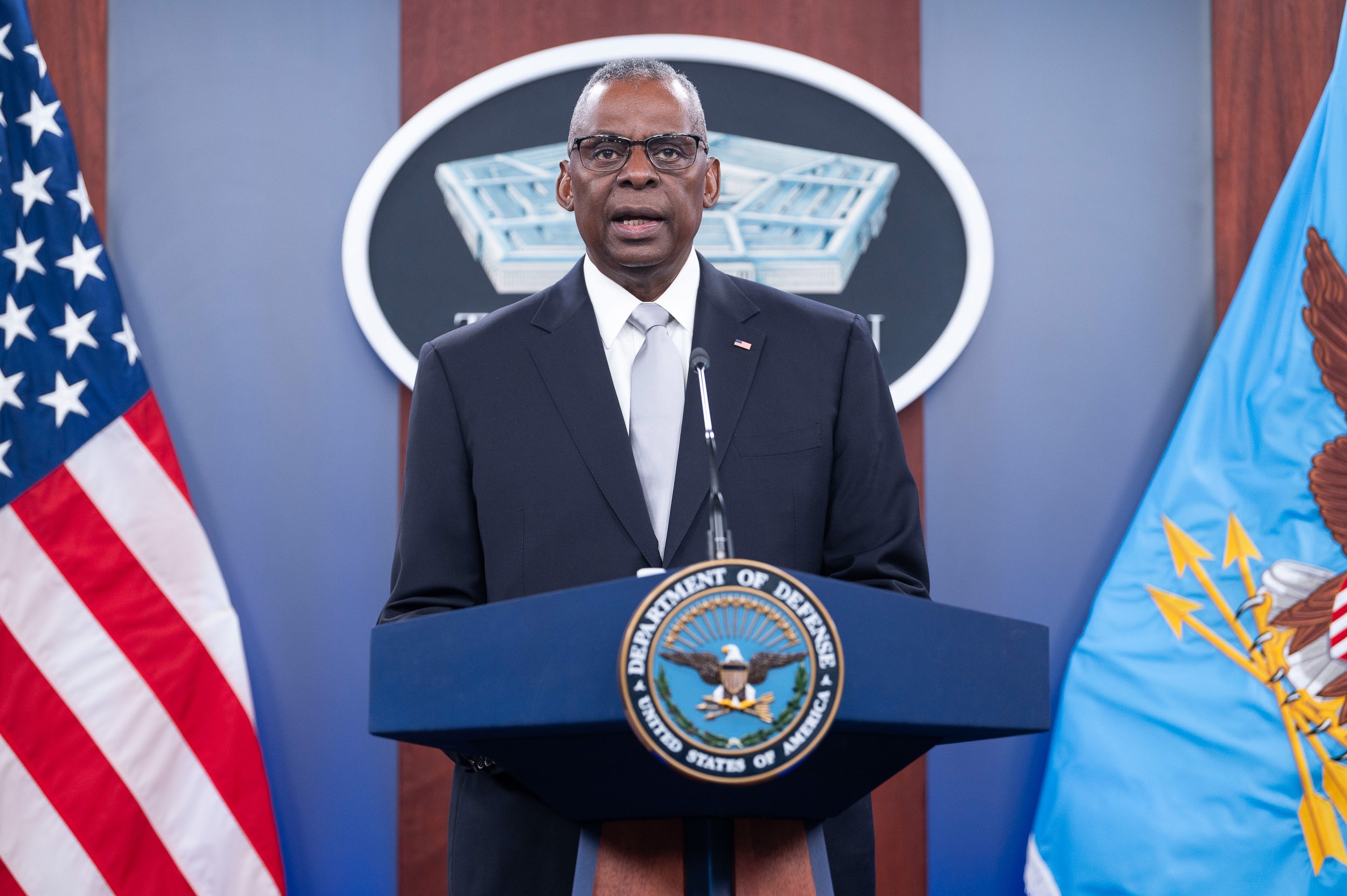WASHINGTON (AURN News) — In a rare public apology, Secretary of Defense Lloyd Austin expressed regret and took full responsibility for failing to disclose his health complications following recent prostate cancer surgery. The apology comes amidst allegations that Secretary Austin did not inform President Biden or the White House promptly, raising concerns about transparency.
Speaking at his first press briefing at the Pentagon since his release from Walter Reed Medical Center, Austin acknowledged his lapse in handling the situation. He outlined the challenges he continues facing post-surgery. “I’m recovering well, but as you can see, I’m still recovering. Still having some leg pain and doing physical therapy and — to get past it. I’m deeply grateful to my doctors and the nursing staff at Walter Reed, and I very much appreciate all of the good wishes,” he shared.
The Secretary of Defense revealed that the decision to keep his prostate cancer diagnosis private was rooted in his initial shock and the desire not to burden others.
“But I want to be crystal clear — we did not handle this right and I did not handle this right. I should have told the President about my cancer diagnosis. I should have also told my team and the American public. And I take full responsibility. I apologize to my teammates and to the American people,” he admitted.
“I was being treated for prostate cancer. The news shook me, and I know that it shakes so many others, especially in the black community. It was a gut punch, and frankly, my first instinct was to keep it private. I don’t think it’s news that I’m a pretty private guy. I never like burdening others with my problems. It’s just not my way,” Austin said.
The apology comes at a time when discussions about health disparities, particularly in the Black community, have gained prominence. Black men have a 1.7 times higher likelihood of being diagnosed with prostate cancer and are 2.1 times more likely to die from it than their white counterparts, according to the non-profit organization Zero Prostate Cancer.
Click play to listen to the AURN News report from Jamie Jackson:




